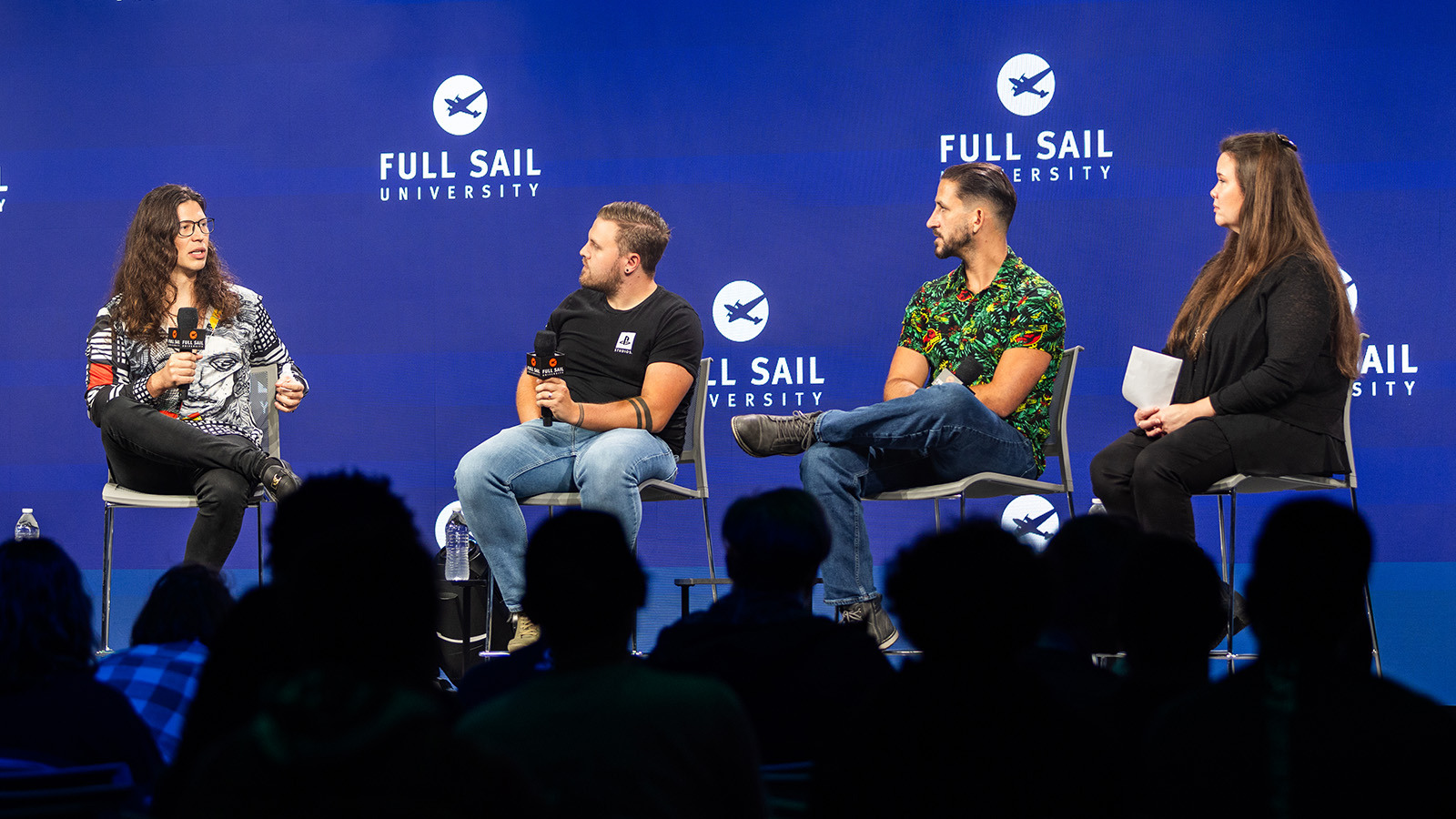Full Sail Stories
Published Oct 12, 2023
Grads Share Industry Insights in Game Development Panel
Full Sail grads Matthew Schulz and Zach Gillespie returned to campus to discuss their careers in the game industry while working with studios including EA and Sony PlayStation.

As new Full Sail grads embark on careers in the video game industry, it’s important for them to know where the industry has been, where it is currently, and where it’s headed next. In a recent Game Industry Panel hosted on the Full Sail campus, grads and industry professionals shared their takes on game development throughout the years, telling students how to prepare for learning and working in a new, fast-paced environment and how to stand out in a competitive field.
With an impressive list of credits between them, the panel welcomed two graduates – Senior Account Manager with Virtuos Games Matthew Schulz (Mortal Kombat I & II, Madden 21) and Playstation Senior Animator Zach Gillespie (The Last of Us, The Sims) – as well as Redemption Games Art Director RJ Keates (Batman: The Telltale Series).
Game engines, development tools, and applications change over time as technology develops, but so does the nature of the games industry itself. While 2020 saw a boom in remote opportunities for game designers, developers, and artists, the industry is now returning to smaller teams and on-site positions. In some situations, working in the office is a must. “[Some studios] need to work in-house," said Matt. "If all of your seniors, your leads, your art directors are all remote, [your staff] is not going to get the support that they need or that we got when we first got into the industry."
For all three panelists, one important thing that hasn’t changed about the game industry is the ability to learn on the job, self-start, and problem-solve. “The learning curve is always going to be there,” said Zach. “Companies have their proprietary software, workflows you’ve never seen before, things like that. But being able to interact with people and knowing how to ask questions and knowing that it’s okay that you don’t know ... that’s an [important] trait [to have].”
“What’s great about [Full Sail] is that you’re all proven problem-solvers at this point,” Zach added. “The people I appreciate working with the most are the ones who will try for 15 minutes and say ‘I tried x, y, and z. Do you know what’s the matter here?’ and I feel like we gained those skills by coming [to school] here.”
During the panel, Matt, Zach, and RJ shared their preferred tools for game development, from project management suites and data organizers to design engines including the current industry leader, Unreal Engine 5. “Unreal 5 has become the major player in the game, at least on the AAA side,” said Matt. “I know [game degrees at Full Sail] have become more Unreal-focused which is good because again, this is what we’re leaning into.”
For more from our seasoned industry panelists and their takes on game development throughout the years, check out the full panel below.



